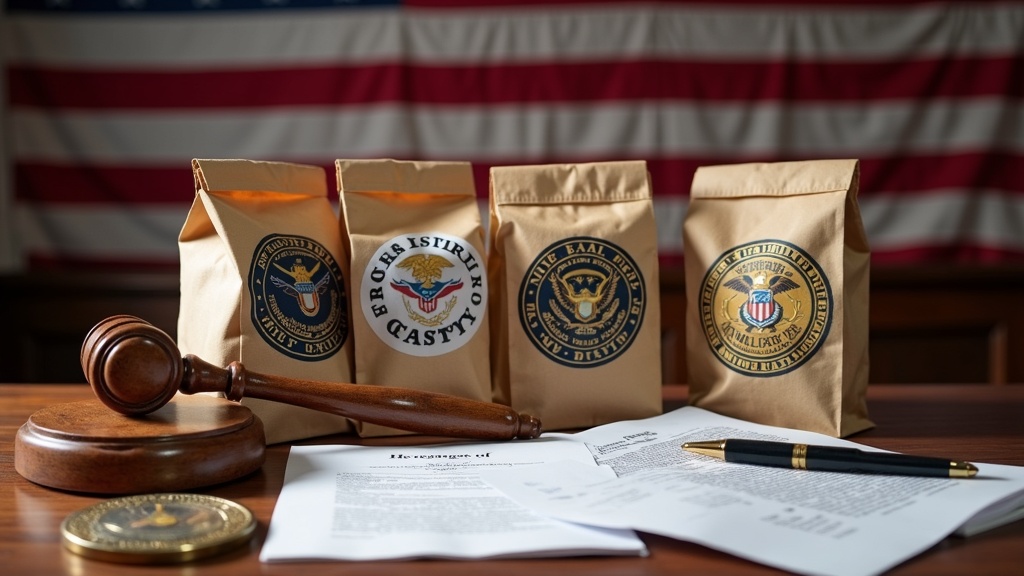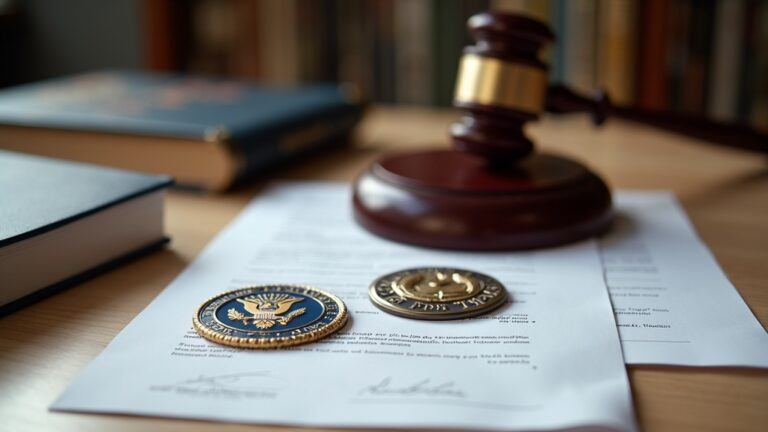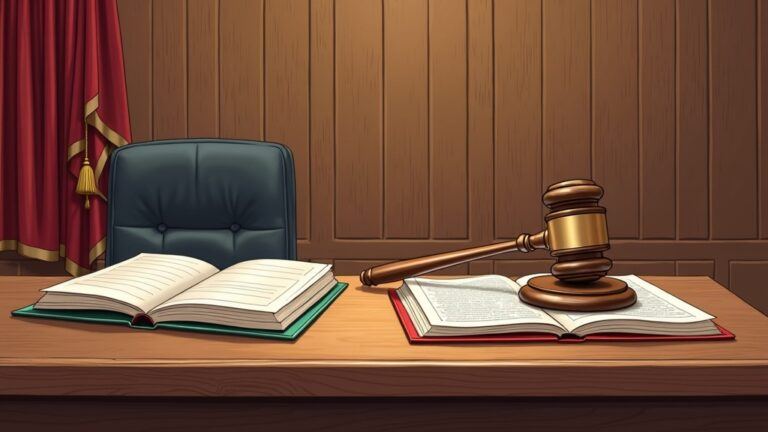Introduction
Federal investigations have a reputation for being slow-burning and super detailed, a far cry from how TV makes them look. Far from the spotlight and drama, understanding federal investigations and how these cases drive major legal action, impacting businesses, communities, and individuals all over the country. Getting how these investigations actually work can make the whole process feel a lot less intimidating and help you feel more prepared.

Table of Contents
What Qualifies as a Federal Investigation?
Not every crime lands on a federal agent’s desk. Federal cases usually come up when someone breaks U.S. federal law, like Title 18 (criminal code), Title 21 (drug laws), or Title 26 (tax code). It all gets even more complicated if crimes cross state borders, hit federal property, or involve international smuggling. So, not every newsworthy crime suddenly becomes a federal case; it typically takes something with a national reach or big impact.
Sometimes, federal law and state law overlap. This is why you might see both federal and state prosecutors jumping into a case. Don’t worry, this isn’t double jeopardy. The dual sovereignty doctrine lets both the federal and state governments prosecute for the same act since each has different interests at play.
Who Kicks Off Federal Investigations?
Federal agencies each have their areas of expertise. The FBI handles things like whitecollar crime, terrorism, and cybercrime. Homeland Security Investigations (HSI) are all about cross-border smuggling and immigration. The DEA gets into drug cases, while the IRS Criminal Investigation team tracks down tax evasion. There are other specialty departments, including the Secret Service (which tracks counterfeiting and cyber fraud), the US Postal Inspection Service, and even the EPA’s Criminal Investigation Division for environmental cases.
The Department of Justice (DOJ) keeps things moving smoothly, as U.S. Attorneys manage most prosecutions. When there’s a big investigation with different agencies, special task forces like Joint Terrorism Task Forces (JTTF), Organized Crime Drug Enforcement Task Forces (OCDETF), and Internet Crimes Against Children (ICAC) help share resources and knowledge.
How Federal Cases Compare to State Cases
Federal cases generally involve higher stakes. They have tougher evidence requirements, bigger powers to demand records and search property, and the possibility of much longer prison time. Federal agents gravitate toward crimes that make a bigger splash socially or economically, like massive fraud, interstate drug rings, or cyber attacks that reach across state or national lines.
Stages of a Federal Investigation
Getting Started: From Hunch to Investigation
A federal investigation can get its start from plenty of places. Sometimes it’s a Suspicious Activity Report (SAR) from a bank, a tip by a whistleblower, leads from international partners, or just good old-fashioned surveillance and detective work. The FBI breaks new leads into three buckets: “assessments,” “preliminary investigations,” and “full investigations,” based on the amount and type of information available. This all follows their Domestic Investigations and Operations Guide (DIOG).
Interagency sharing is a huge focus these days, thanks to data from places like FinCEN, the Treasury, and alliances with international intelligence groups. By trading info, agencies make it much harder for criminals to hide their tracks.
Building the Evidence
Federal agents put grand jury subpoenas to work, forcing people to cough up records or testify. They use search warrants to collect physical evidence and Title III wiretaps to listen in on conversations. Cases often need undercover operations or confidential informants too, especially if the evidence isn’t easily found on documents or emails.
The grand jury is central; it listens to evidence and can call for testimony or records. This speeds things up compared to some state cases—or at least helps keep them efficient. Agents sometimes pull in undercover resources to break into secretive groups like cartels or insider traders.
Reviewing the Case: To Prosecute or Not?
Whether to press charges or not is up to local U.S. Attorneys’ Offices. They size up if the evidence is solid and if charging makes best use of resources. In headline-making or politically charged cases, DOJ Main Justice in Washington reviews everything before greenlighting an indictment.
If charges move forward, the grand jury issues an indictment. Particularly sensitive indictments might be kept sealed at first to let law enforcement organize arrests or keep suspects from running.
Arrest and Arraignment
After charges are ready, federal agents deliver arrest warrants and bring suspects to court quickly. Judges lay out the charges for the accused, then decide if they should get bail, or if other release conditions are needed while the case gears up. Urgent arrests happen fast if there’s fear that someone might run or destroy evidence.
What Kinds of Crimes do Federal Agents Handle?
WhiteCollar & Financial Crimes
These federal cases are full of financial schemes: securities fraud, embezzlement, major corporate lies, insider trading, and bigtime tax evasion. Agencies work closely together. The FBI, SEC, IRS-CI, and even FinCEN all swap information to trace tricky money movements and unravel tangled schemes.
Drug Trafficking & Organized Crime
Here’s where you get cartel activity, drug smuggling, racketeering (RICO), and intricate money laundering. Federal agents use undercover work and secret wiretaps to take down organizations you wouldn’t be able to touch with ordinary law enforcement tactics.
National Security & Counterterrorism
After 9/11, these cases got a major boost in priority. Investigators often rely on FISA-court-approved surveillance, classified intel, and work with Joint Terrorism Task Forces to spot and stop big threats, both domestic and foreign.
Cybercrime & Digital Offenses
Digital crimes range from ransomware and hacking to identity theft and online fraud. The FBI’s Cyber Division and DOJ’s National Cryptocurrency Enforcement Team keep up with today’s constantly changing technology. Their job is to spot new scams and knock down high-tech robbers quickly.
Civil Rights & Public Corruption
Federal agents also handle cases involving police misconduct, voter intimidation, hate crimes, or government corruption. The DOJ’s Civil Rights and Public Integrity sections take the lead here to protect society as a whole.
How Federal Agents Build Cases
Bringing Data Together
Seeing the entire puzzle is key. So, agents tap into fusion centers and special data teams, comparing bank and travel records, digital logs, and communication trails. With data analytics, it’s easier than ever to spot links between suspects, events, and money, helping bust wide open complex conspiracies.
Human Sources & Confidential Informants
Inside sources really can make or break these cases. Agents carefully evaluate, debrief, and sometimes pay informants to get leads. There are traps, though: the government has to be careful about someone’s motives and the risk of entrapment. If a case relies too much on an informant, defense attorneys might go after their trustworthiness.
Surveillance & Technology
Modern surveillance is more than cars with dark windows. Now, agents use wiretaps (if a judge gives the go-ahead), tiny cameras, GPS trackers, and pull info from metadata. Laws like the Stored Communications Act and Wiretap Act set boundaries here, so DOJ tech experts often step in to give the green light before any data gets scooped up.
Forensic & Digital Evidence
The FBI’s own lab and digital forensics units extract info from devices, authenticate official papers, or crack into locked computers. The key is making sure the proof sticks to federal standards, like FRE 702 for expert testimony or FRE 901 for authenticating evidence—it all has to withstand cross-examination in federal court.
The Role of Federal Prosecutors
Inside the U.S. Attorney’s Office
Cases really come together when Assistant U.S. Attorneys (AUSAs) join forces with the investigators. AUSAs run the show from indictments to the finish line and work closely with Main Justice on tough policy calls or high-stakes cases.
Making Charging and Plea Decisions
Prosecutors juggle the public’s interest, strength of evidence, and limited resources. Plea deals are pretty common, especially when catching bigger offenders means letting smaller players talk in exchange for lighter sentences.
Cooperation Deals & Immunity
The feds sometimes offer “Queen for a Day” proffer deals or outright immunity if a witness can move the bigger case ahead. These are delicate negotiations and involve plenty of risk and benefit for both sides, plus careful legal agreements.
How Defense Attorneys Shape a Federal Case
Jumping in Early
Having a seasoned defense lawyer before charges hit the court record can turn the tide. These attorneys fight over evidence, negotiate for reduced charges or even persuade prosecutors to drop the whole case early if there’s a solid argument or lack of proof.
Pretrial Fights & Discovery
Defense teams often throw motions at the court, trying to block or limit evidence—challenging faulty warrants or demanding that prosecutors share hidden Brady evidence. Protective orders often decide just how much information the public gets to see before trial.
Going to Trial and Sentencing
Sentencing in federal court is complicated. With strict guidelines, mandatory minimum sentences, and wiggle room for judges to reward cooperation, the stakes are high. Lawyers guide clients through cooperating or fighting charges while always keeping an eye on the best possible outcome.
Grand Juries, Subpoenas, and Testimony
A grand jury doesn’t decide whether someone is guilty. Instead, it just reviews the evidence to say if there’s enough to bring formal charges. Grand juries are powerful—they can order banks, tech companies, or even everyday people to hand over evidence or testify, using subpoenas as legal muscle. Usually, the whole thing happens behind closed doors and, often, without the defense lawyer in the room, giving prosecutors a strategic advantage.
- Grand Jury Authority: Grand juries use the Federal Rules of Criminal Procedure (especially Rule 6) and can dig into almost any suspected federal crime.
- Subpoenas: These force people or companies to give up documents or show up to talk, cutting past a lot of the slowdowns you find in civil court.
If you or your business ever face federal investigation, knowing what each player can do, what steps are involved, and when to call a lawyer makes a world of difference. The more you know, the more ready and confident you’ll feel under federal scrutiny.
Common Questions about Federal Investigations
Do federal agents always make arrests right away?
Not at all. Most investigations run for months—or even years—while the agents quietly line up their case.
Can the same case be prosecuted by both state and federal courts?
Yes. If a crime breaks both state and federal laws, both courts might get involved. The dual sovereignty rule allows for this parallel action.
How can I tell if I’m under federal investigation?
You’ll usually hear directly from agents, get a subpoena, or find out your business records are being requested. Getting a lawyer’s advice early on is absolutely crucial if you get any of these hints.
If you feel like you need to report a crime involving money laundering, please don’t hesitate to contact your local law enforcement or, if in the United States, reach out to the Homeland Security Investigations or the Federal Bureau of Investigations.
Contact Us:
If you need to contact us for any reason, please feel free to do so here!






